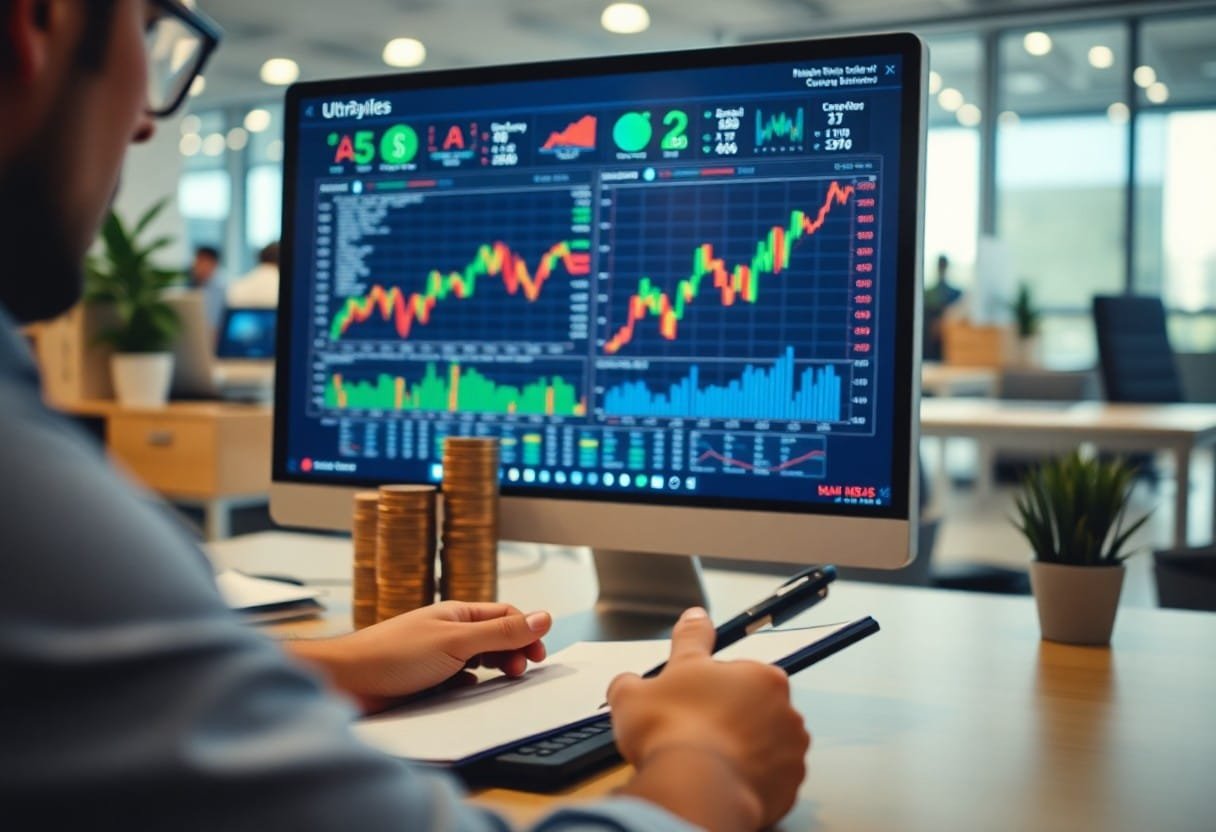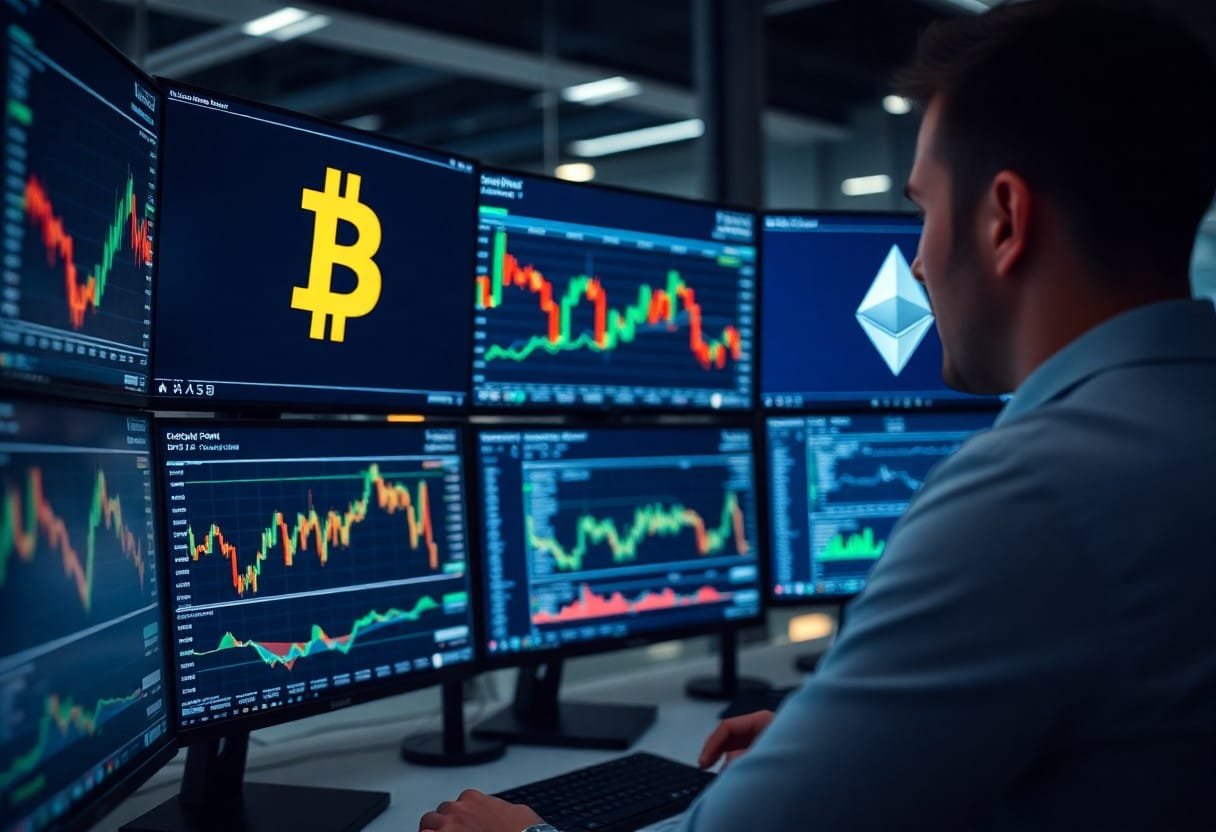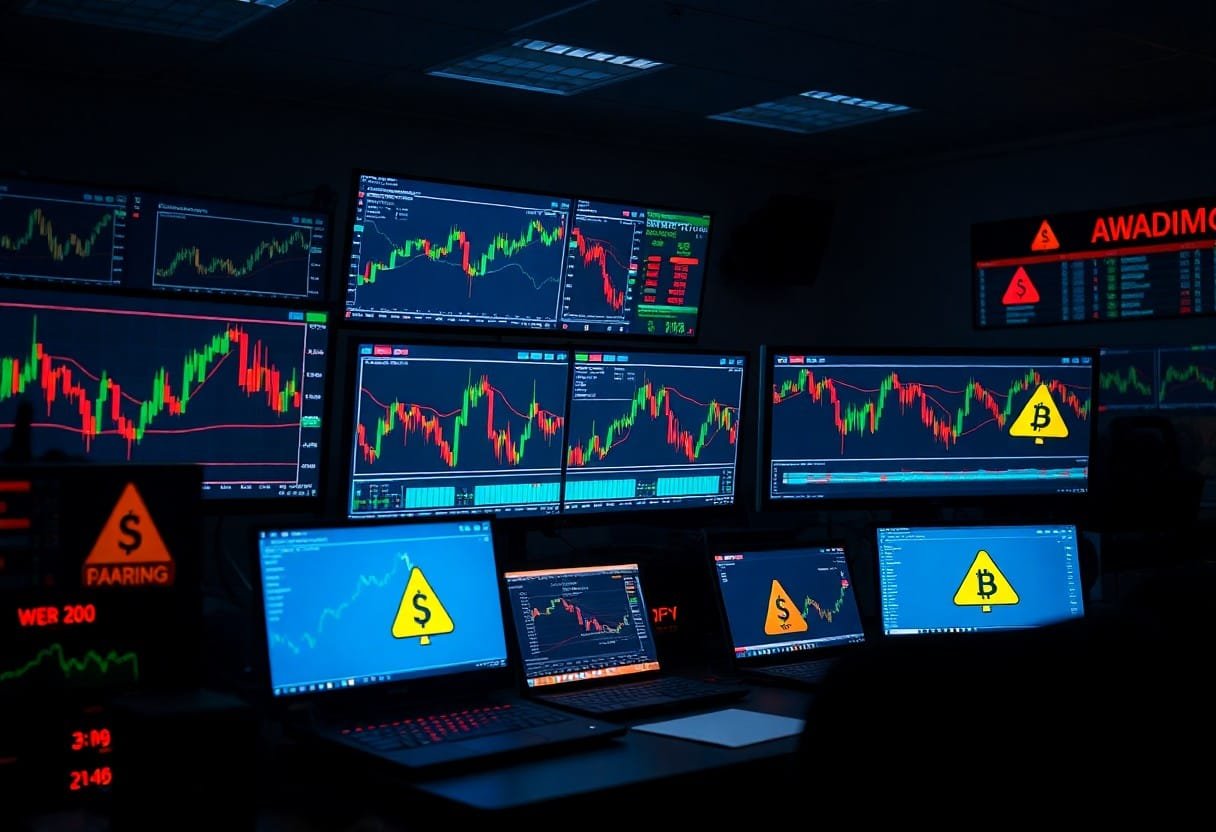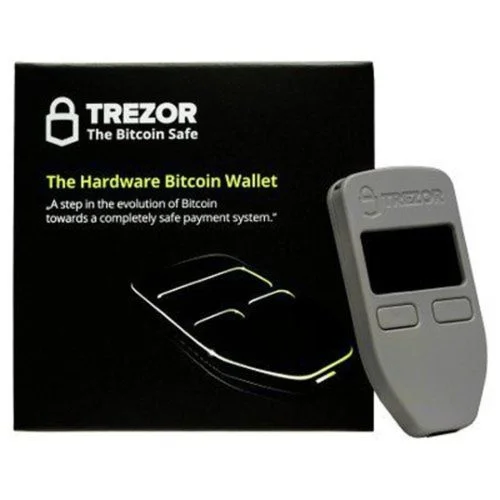As you look into the world of crypto trading, you’ll soon realize that selecting the right exchange is vital for your success. You’ll want to find a platform that meets your needs, offers the coins you’re interested in, and provides a secure environment for your transactions. Your goal is to make informed decisions, and choosing the right exchange is the first step in your crypto trading journey, so let’s explore how to make the best choice for your trading needs.
Key Takeaways:
To make informed decisions when selecting a platform for cryptocurrency trading, consider the following points:
- Focus on Security measures, such as two-factor authentication, cold storage, and encryption, to protect your assets from potential Hacks and Thefts.
- Evaluate the Fees associated with each exchange, including Transaction fees, Withdrawal fees, and Deposit fees, to minimize your overall Costs.
- Consider the Liquidity and Volume of the exchange, as well as the User Interface and Customer Support, to ensure a smooth and Efficient trading experience.
Key Factors
The most important aspects to consider when selecting a crypto exchange include:
- security
- trading fees
- liquidity
- Centralized
- Decentralized
- Stop-loss orders
- Margin trading
- Minimize losses
- Maximize gains
. Any exchange you choose should align with your trading goals and preferences.
Security Considerations
These security measures should protect your assets from potential threats, giving you peace of mind while trading.
Trading Fees and Charges
To get the most out of your trades, you need to consider the fees associated with buying and selling cryptocurrencies on an exchange, as they can eat into your profits.
With trading fees and charges in mind, you can make informed decisions about which exchange to use for your crypto trading activities, considering factors such as the fee structure, payment methods, and any discounts available to you as a trader, allowing you to maximize your trading potential and minimize your costs.
Exchange Types
While selecting an exchange, you’ll encounter different types. Consider the following:
Perceiving your needs is key.
| Type | Description |
|---|---|
| Centralized | Traditional |
| Decentralized | Blockchain-based |
| Hybrid | Combination |
| Derivative | Contracts |
| Spot | Direct |
Centralized Exchanges
Around centralized exchanges, you find they are easy to use, offering seamless transactions, making it simple for you to trade.
Decentralized Exchanges
By using decentralized exchanges, you can maintain control over your funds, ensuring your assets are secure.
Exchange platforms like decentralized exchanges provide a more secure and transparent way for you to trade, giving you more control over your transactions and assets, and allowing you to make informed decisions about your investments.
Trading Features
Now that you’re considering trading features, you should focus on what matters most to you as a trader. Your needs may vary, but having a range of options is always beneficial.
User Interface and Experience
Beside the functionality, the user interface plays a significant role in your trading experience. You want a platform that is easy to navigate, allowing you to make trades quickly and efficiently.
Advanced Trading Tools
Tools such as stop-loss orders and margin trading can enhance your trading strategy. Here are some key features to consider:
| Feature | Description |
|---|---|
| Stop-loss orders | Automatically sells when price falls |
| Margin trading | Allows borrowing to increase trade size |
This selection of tools can significantly impact your trading outcomes. You can use them to:
| Strategy | Benefit |
|---|---|
| Stop-loss | Limits potential losses |
| Margin trading | Potentially increases gains |
Regulatory Compliance
Keep in mind that when choosing a crypto exchange, you should consider regulatory compliance. You can check out Best Crypto Exchanges and Apps for January 2025 to get an idea of reputable exchanges.
Jurisdiction and Licensing
Against the backdrop of varying regulations, you should verify the exchange’s jurisdiction and licensing. You need to ensure the exchange operates in a legitimate and authorized environment.
Anti-Money Laundering Policies
An necessary aspect of regulatory compliance is the implementation of anti-money laundering policies. You should look for exchanges that have strict policies in place to prevent illicit activities.
Hence, as you evaluate an exchange’s anti-money laundering policies, you’ll want to consider factors such as know-your-customer (KYC) procedures and transaction monitoring. This will help you ensure that your trading activities are secure and compliant with regulatory standards, giving you peace of mind as you navigate the world of crypto trading.
Reputation and Community
Unlike other factors, reputation and community can make or break your crypto trading experience. You want to trade on an exchange that is trustworthy and has a strong community behind it.
User Reviews and Ratings
Around the web, you’ll find various reviews and ratings that can give you an idea of an exchange’s reputation. You can check sites like Trustpilot or Reddit to see what other users have to say about their experiences.
Social Media Presence and Support
Between the various social media platforms, you can get a sense of an exchange’s engagement with its community. You can check their Twitter, Facebook, or Telegram channels to see how they interact with users.
User experience is also reflected in the level of support an exchange provides on social media. You can test their response time and helpfulness by reaching out to them with a question or concern, and see how they handle it. This will give you an idea of what kind of support you can expect if you encounter any issues while trading on their platform.
Comparison and Evaluation
After researching various exchanges, you’ll want to compare and evaluate their features.
| Exchange | Features |
|---|---|
| Binance | Low fees, high liquidity |
Side-by-Side Comparison
At this stage, you’ll be looking at the details of each exchange.
| Exchange | Security |
|---|---|
| Binance | 2-factor authentication |
Weighing the Pros and Cons
Above all, you need to weigh the advantages and disadvantages of each exchange.
| Pros | Cons |
|---|---|
| Low fees | Limited customer support |
| High liquidity | Complex interface |
And as you consider your options, you’ll find that each exchange has its unique benefits and drawbacks.
| Pros | Cons |
|---|---|
| 快Apollo | Secure storage |
| User-friendly interface | High fees |
| Wide range of coins | Limited liquidity |
| Good customer support | Complex verification process |
To wrap up
Taking this into account, you can now make an informed decision when choosing the right exchange for your crypto trading needs. You will consider your goals, security, and fees to find the perfect fit. With your research, you will navigate the world of crypto trading with confidence, making your journey smoother and more successful. You got this, and your crypto trading experience will be enjoyable and rewarding.
FAQ
Q: What are the key factors to consider when selecting a cryptocurrency exchange for trading?
A: When choosing a cryptocurrency exchange, several factors must be taken into account to ensure a safe and successful trading experience. These factors include the exchange’s reputation, security measures, fees, available cryptocurrencies, trading volume, and user interface. It’s also important to consider the exchange’s regulatory compliance, customer support, and ease of deposit and withdrawal. Additionally, looking into the exchange’s history, such as any past hacks or-security breaches, can provide insight into its reliability.
Q: How do I evaluate the security of a cryptocurrency exchange before depositing my funds?
A: Evaluating the security of a cryptocurrency exchange involves checking for several indicators of a robust security system. This includes looking for exchanges that use two-factor authentication, cold storage for the majority of their assets, and regular security audits. It’s also important to check if the exchange is transparent about its security measures and protocols. Furthermore, checking for any certifications or compliance with international security standards can add an extra layer of assurance. Lastly, user reviews and feedback from reputable sources can provide valuable insights into the exchange’s security track record.
Q: What are the differences between centralized and decentralized exchanges, and which one is better for crypto trading?
A: Centralized exchanges (CEX) are traditional exchanges that act as intermediaries between buyers and sellers, holding users’ funds in their custody. They offer ease of use, high liquidity, and usually support fiat currency deposits. On the other hand, decentralized exchanges (DEX) operate on blockchain technology, allowing for peer-to-peer transactions without the need for intermediaries. DEXs offer greater control over funds and enhanced privacy but often have lower liquidity and can be more complex to use. The choice between CEX and DEX depends on the trader’s priorities: if ease of use and high liquidity are preferred, a CEX might be the better choice. However, if control over funds and privacy are paramount, a DEX could be more suitable. It’s worth noting that each type of exchange has its own set of risks and benefits, and understanding these is key to making an informed decision.








